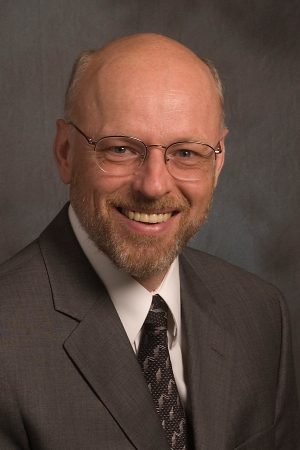If orthopedic surgery was an Olympic sport, Dr. Robert McCormack would be a gold medalist. Since graduating from Queen’s School of Medicine in 1979, Dr. McCormack has become one of Canada’s most respected orthopedic surgeons for helping many of the country’s top athletes.
 It is the reason why Dr. McCormack is receiving this year’s Kathleen Beaumont Hill Award. The award is the highest honour given by the Vancouver Branch of the Queen’s University Alumni Association. He will receive the award at a reception on Sept. 23.
It is the reason why Dr. McCormack is receiving this year’s Kathleen Beaumont Hill Award. The award is the highest honour given by the Vancouver Branch of the Queen’s University Alumni Association. He will receive the award at a reception on Sept. 23.
The Vancouver resident has been Team Canada's Chief Medical Officer at the past six Olympic Games, plus he works with both the Vancouver Whitecaps FC (MLS) and B.C. Lions (CFL), and is a consultant for the NHL Players’ Association. He is the associate head of the Department of Orthopaedics at the University of British Columbia.
Sports have always been a part of his life. He was a track star at Queen’s and his 1,500-metre time of 3:44.60 set in 1978 is still an Ontario University Athletics record.
Dr. McCormack took time out to answer a few questions before a leaving for a site visit to Brazil in preparation for the 2016 Summer Games in Rio de Janeiro.
Q: How does it feel to be this year’s Kathleen Beaumont Hill Award winner?
A: I am honoured and humbled. There have been some very accomplished recipients to date and I guess I was as surprised as some of my Queen’s friends were.
Q: What was your favourite sporting moment while competing at Queen’s University?
A: My best competition ever occurred while I was running for Queen’s. I was lucky enough to set a couple of Canadian open records in the same meet. No one, even me, expected it. It is pretty incredible when, after years of training, everything finally comes together. I specifically remember the second race where I was tired at the start and running only because we needed the points (OUA championships). The effect my Queen’s teammates had – stationed every 50 metres around the track – to push me on to more than I thought possible, was special.
Q: You were a track star at Queen’s. You are now a doctor who works with the Canadian Olympic Committee, B.C. Lions and Vancouver Whitecaps. Why have sports become such a big part of your life?
A: There are very few people that compete at a high level and do not have injuries along the way. Not only did I benefit from the expertise of sport medicine practitioners that helped me stay in the game, but I realized it takes an understanding of the athlete’s “mind set” to be effective. I also “retired” before my prime and was still enthusiastic about competitive sports. When working as a team doctor, the highest priority is to remain professional. But I have to admit that I still live vicariously though the athletes I have the privilege to work with.
Q: Are you surprised your 1,500 metre OUA record time of 3:44.60 set in 1978 still stands more than 35 years later?
A: Very surprised! Not sure how to explain it since generally the sport has progressed. I think I was the beneficiary of a fast track and right field that decided to “go for it” that day. That said, records are made to be broken, so I do not bank on it being there much longer.
Q: Were there any Queen’s professors or classmates who had a big impact on your career?
A: While medicine was my main focus at Queen’s I have my fondest memories of coach Rolf Lund, who had a big influence on me and knew how the get the most out of me. I also have a soft spot for Padre Laverty. I remember him offering to help me as I tried to qualify for the 1980 Olympics (which Canada boycotted). I was not the most religious person on campus but he saw me frequently in the phys ed centre and went out of his way to make sure I had the tools I needed.
Q: You have been to a lot of Olympic Games. Which one was your favourite and why?
A: They all had something special but Sydney 2000 was my first and that makes it my favourite Summer Games. I still have strong memories of the walking in for the opening ceremonies. Vancouver in 2010 certainly was the best Winter Games. They transformed Canada and the way we think about ourselves. The surge in national pride and confidence that we can succeed on the world stage has been very positive. Of course, with all the work we put in, it was rewarding to win a record number of medals.

